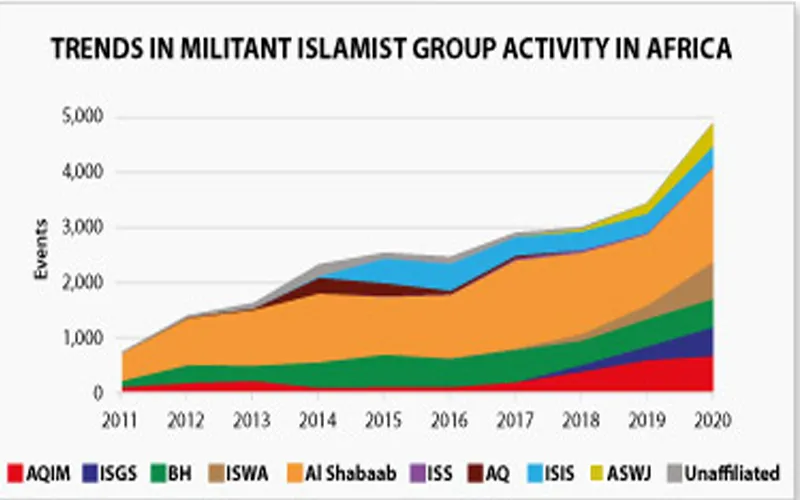Nairobi, 25 April, 2021 / 9:28 pm (ACI Africa).
Countries in Africa are at risk of the penetration of Islamist extremists and their ideologies in what the Religious Freedom in the World Report (RFR) 2021 has described as “risk from transnational jihadism.”
In a backgrounder accompanying the report published Tuesday, April 20 by the Catholic pastoral charity, Aid to the Church in Need (ACN) International, experts caution that “Sub-Saharan Africa is ripe for the infiltration of Islamist ideologies.”
Making reference to the world’s second largest continent, Africa, Mark von Riedemann of ACN says, “On account of generations of poverty, corruption, pre-existing intercommunal violence between herders and farmers over land rights (exacerbated by the consequences of climate change) and weak state structures, this area has become a breeding ground for marginalized and frustrated young men.”
The myriad challenges bedeviling the people of God in African countries have offered “a recruitment opportunity for extremists who prey on them with promises of wealth, power, and the ousting of corrupt authorities,” von Riedemann further notes in the backgrounder titled, “Africa: A Continent at Risk from Transnational Jihadism.”
According to the leadership of the Pontifical Foundation, which strives to support the faithful wherever they are persecuted, oppressed or in need, through information, prayer and action, the situation in African countries is exacerbated “more closely to the core of the human person by a profound manipulation of religion.”








